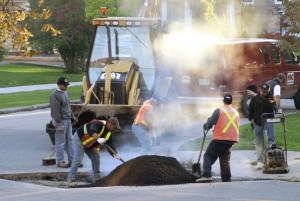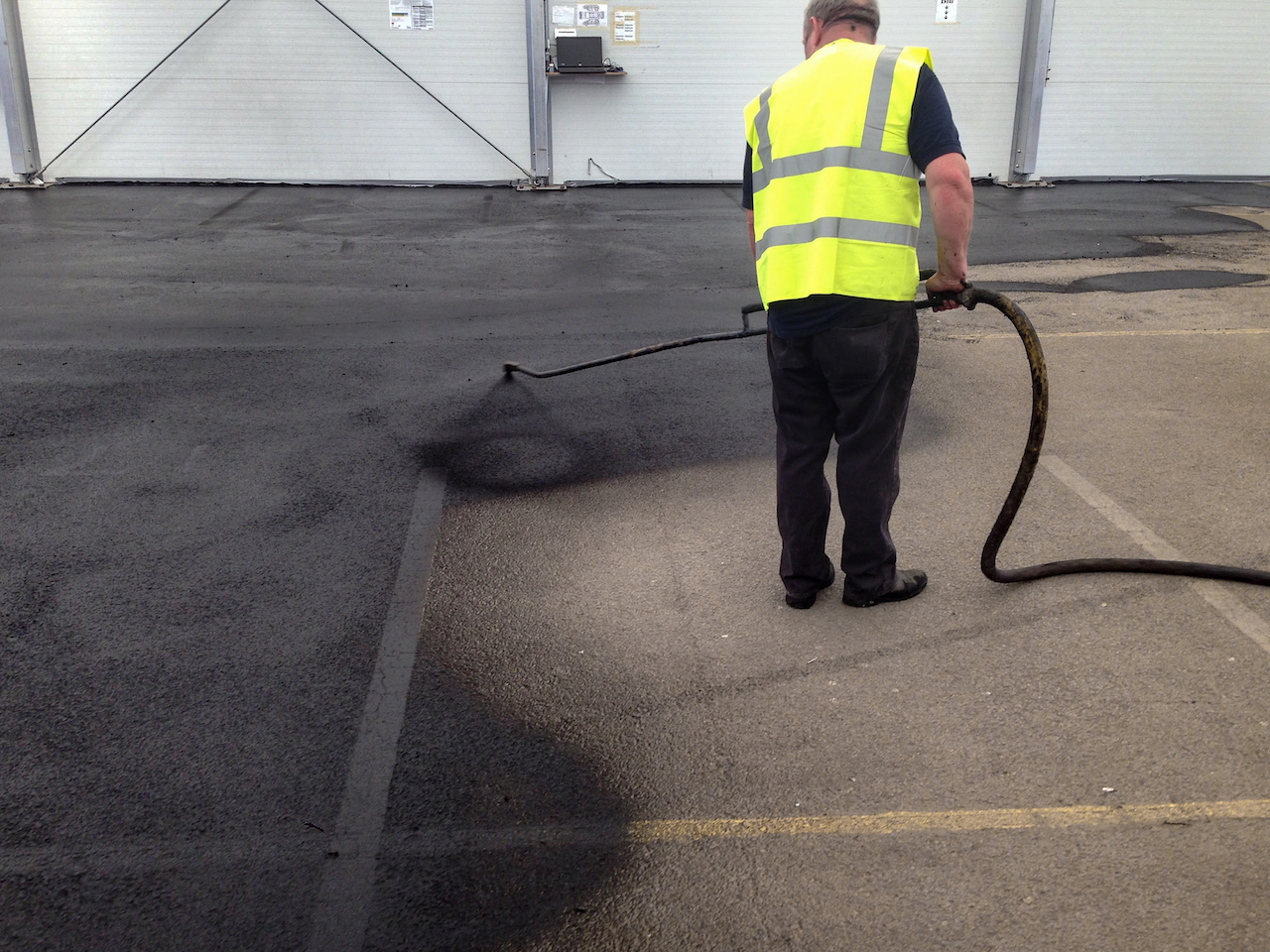
What Is the Best Way to Fix Potholes?
If the Potholes in My Asphalt Pavement Are Deep and Large, What Is the Best Repair Method?
A large, deep pothole is a severe problem that can threaten the integrity of the entire pavement. When it rains, water will fill the hole. The water will be drawn downward by gravity in its liquid state, eventually reaching the base layers and eroding the foundation. Once the foundation has become destabilized, the pavement will lose flexibility and strength. If the water freezes, its expansion will inflict additional damage. This is why parking lot repair contractors often see many large cracks emanating from potholes or find adjacent areas of alligatored asphalt. The best way to repair damage that includes foundation damage is with a full-depth asphalt patching procedure. Your contractor will saw out the pothole and any damaged pavement surrounding it. The foundation will be repaired before new asphalt is installed. A full-depth asphalt patch is considered a permanent repair, so it could last as long as the rest of your pavement if you are proactive about your asphalt sealing and other maintenance procedures.
What Parking Lot Repair Methods Are Best for Minor Potholes?
The main problem with small potholes is that they will not remain minor inconveniences for long. They increase in circumference and depth, spawn large cracks, and facilitate foundation damage. Your contractor can make a cost-effective repair that can prevent future damage. Depending on other factors, the appropriate procedure might be a skin patch or a partial-depth patch. A skin patch is basically just a thin layer of asphalt applied over the damage and the pavement adjacent to it. A partial-depth patch is similar to a full-depth patch, but the contractor will not remove as many asphalt layers. This method will not provide access to the foundation, so it is not the best choice if there is evidence of a destabilized or weakened foundation.
Is There a Way to Repair Potholes During the Winter Months?
Temperatures must be above freezing to install and compact hot mix asphalt. However, your contractor can make a temporary repair by using a method known as cold patching. Since preventing water infiltration and additional damage from winter weather is vital, a cold patch is an excellent option when your contractor cannot use hot mix asphalt to make a permanent repair. Just keep in mind that the life of a cold patch seldom exceeds six months, so be sure to have a permanent repair completed as soon as the weather is cooperative.
For Expert Asphalt Repairs, Contact MH Greeson
MH Greeson specializes in asphalt maintenance and repair for clients in Marietta and throughout North Georgia. We offer asphalt patching, parking lot striping, asphalt crack repair, traffic sign, and car stop installation, asphalt sealcoating, bollard installation, and pavement markings. We are known for providing superior work and exemplary customer service at affordable prices. We make it easy for you to request a free quote online by simply submitting the form, or you can call our Marietta office at 770-335-2983 if you would like to discuss your project with one of our representatives.




